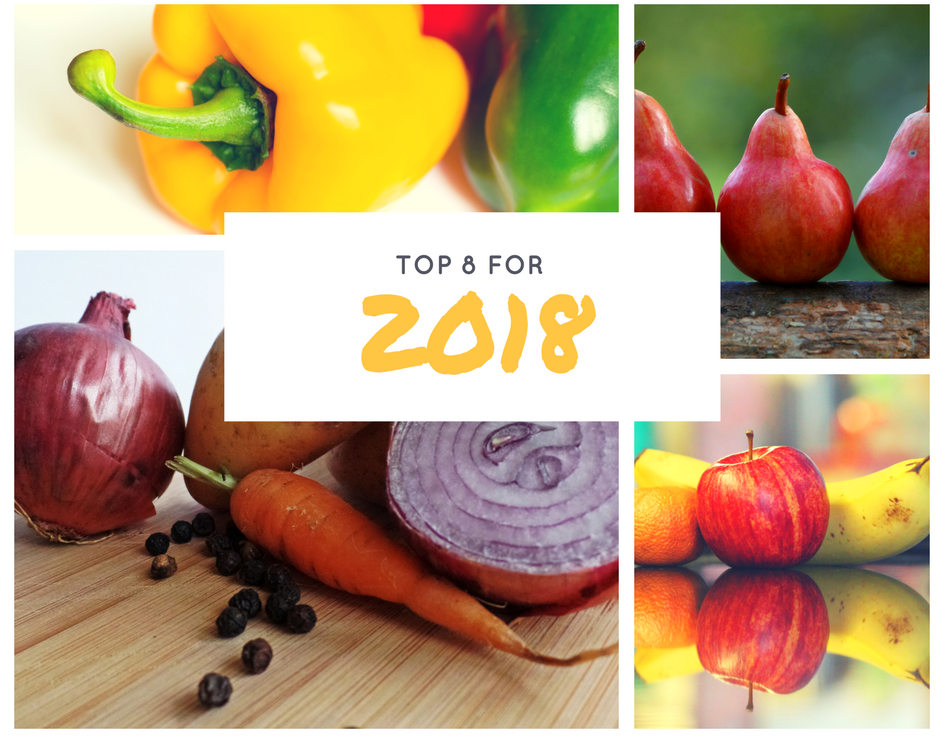|
Top 8 Nutrition Tips for 2018
1. Create balanced meals Make your plate colorful and bright. Choose lots of veggies, eat a moderate amount of protein, and eat less carbs, especially the refined variety. Try to have vegetables at each meal 2. Drink more water Choose clean water. If you need, it’s ok to add in some fruit or herbs to diffuse in the water to add some flavor to the food. 3. Eat whole real foods Choose less heavily processed foods. Reduce the chemicals in your food by avoiding convenience foods that are often loaded with preservatives. Choose foods that are in their whole-natural form. 4. Cut out sugary beverages This includes soda, juice, gourmet coffees, smoothies, etc. 5. Use fewer condiments Condiments often contain a lot of sugar and sodium. These foods are typically low in nutrition and are merely added calories. Try flavoring food with herbs and spices instead. For example instead of BBQ sauce on ribs, try adding a dry rub. 6. Eat more fiber Add in foods like seeds, whole grains, vegetables, and fruit. Some high fiber foods include broccoli, beans, pears, chia seeds, almonds, berries, brussel sprouts, oatmeal etc. 7. Eat locally when able Choosing local foods not only supports local farmers, but is also healthier. Winter is a bit tougher, but in the summer time you can easily access the farmers market and the co-op. Wintertime you have to plan ahead for during the summer and fall. Try canning or freezing some of your own produce or what you bought at the market. Otherwise try choosing foods that haven’t traveled quite so far to get to you. 8. Think about what your food is doing for you! Last but not least… before you take a bite or order that favorite dish, think about what the food is doing for you… Is it hurting your body? Is it helping your body? Is it bringing you joy to eat that food? Does eating the food make you feel guilt and regret? Comments are closed.
|
Details
Archives
June 2024
Categories |
|
Jessica Carter MS, RD, LD, CDE, RYT200 1900 Division ST W, Unit 4, Bemidji 218-556-9089 |
|
Copyright © Core Health & Nutrition, LLC.


 RSS Feed
RSS Feed

